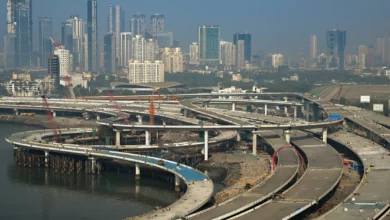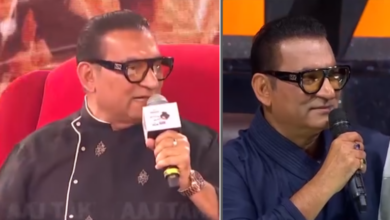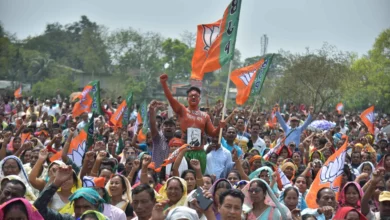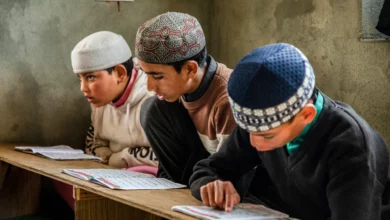
India's highest court on Tuesday recognized a neutral gender that is neither male nor female, in a landmark ruling that paves the way for equal rights for several million transgenders and eunuchs.
The Supreme Court also said transgenders should be granted access to social welfare schemes offered to other minority groups, in a judgement hailed by transgenders who suffer widespread discrimination.
"Transgenders are citizens of this country and are entitled to education and all other rights," Justice K.S. Radhakrishnan told the court while handing down the ruling.
"Recognition of transgenders as a third gender is not a social or medical issue but a human rights issue," said Radhakrishnan who headed a two-judge bench on the case.
The case was filed in 2012 by a group of petitioners including prominent eunuch and activist Laxmi Narayan Tripathi seeking equal rights under the law for the transgender population.
Transgenders and eunuchs — men who have been castrated — live on the extreme fringes of India's culturally conservative society, often resorting to prostitution, begging or menial jobs that leave them mired in poverty.
Tuesday's ruling comes after the same court last December reinstated a ban on gay sex in a shock ruling that sparked accusations it was dragging the country back to the 19th century.
Gay sex had been effectively legalized in 2009 when the Delhi High Court ruled that a section of the penal code prohibiting "carnal intercourse against the order of nature" was an infringement of fundamental rights.
'Proud to be Indian'
"Today, for the first time I feel very proud to be an Indian," Tripathi told reporters outside the court in New Delhi.
"Today my sisters and I feel like real Indians and we feel so proud because of the rights granted to us by the Supreme Court," Tripathi said.
The ruling comes after Australia's top court also ruled earlier this month that a person can also be legally recognised as gender neutral, ending a long legal battle by a sexual equality campaigner.
On Tuesday, the court in India instructed governments to provide transgender people with quotas in jobs and education like other disadvantaged groups, lawyer for the petitioners Sanjeev Bhatnagar said.
The court said transgenders had the right to access medical care and other facilities and be categorised as socially and economically backward like other groups in a bid to bring them into the mainstream.
"Direction has been given to all the state governments and the central government to comply with the direction of the court to give them reservations and to identify them and give them their rights," Bhatnagar told reporters outside the court.
Some state governments and official bodies already recognise transgenders, including the Election Commission which ruled in 2009 that they could be listed as "others" on electoral roles and voter identify cards.
Official estimates for India's transgender population are not known but they are thought to number several million.
Transgenders are classified as people who have either had sex change operations or who regard themselves as the opposite of their born gender, according to Sanjay Srivastava, professor of sociology at the Institute of Economic Growth in New Delhi.
However only 28,341 are registered with the Election Commission for the general elections which are currently taking place, highlighting the fear and stigma many face.
"It is a historical judgement for us because the transgender community has been discriminated against and harassed for over a century," said Kalki, founder of Sahodari Foundation which fights for the rights of transgenders.




